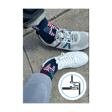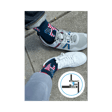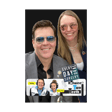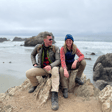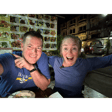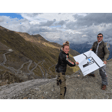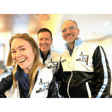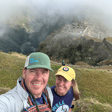Become a Creator today!Start creating today - Share your story with the world!
Start for free
00:00:00
00:00:01

Ep. 47: Everyday Oral Surgery x Between Two Teeth: Exploring the Combined Model of Periodontics and Oral & Maxillofacial Surgery (Part 1)
We usually do not talk about Teeth, but here we go. In this groundbreaking collaboration between Everyday Oral Surgery and Between Two Teeth, we dive into the innovative model of combining periodontics and oral & maxillofacial surgery. Join us as we uncover the synergies, benefits, and challenges of this integrated approach to dental care.
Hosted by Everyday Oral Surgery's Dr. Grant Stucki and Between Two Teeth's Stephy Steph and Bobby, this multipart series delves deep into the intricacies of the combined model, offering insights, expert interviews, and practical advice.
Tune in for #DentalInnovation, #IntegratedDentistry, and #Oralsurgery. Subscribe now for this enlightening series and expand your understanding of dental care!
Transcript
Introduction and Guest Welcome
00:00:00
Speaker
Hey there, guys. Between two teeth, we usually don't talk about teeth, but today you're in for a special treat. We're talking about teeth. We're talking about oral maxillational surgery and periodontics with our good friend from the podcast, Everyday Oral Surgery, Dr. Grant Stuckey. Please give a listen. Well, Grant, thank you. I, you know, I'm Bobby. I was going to say, I'm stuffy stuff. And we're Between Two Teeth. You know, we've got a YouTube channel and a podcast. I can't believe that he invited us back after
00:00:27
Speaker
You know, we had so much fun the last time we talked about our service mission to, uh, for Ukrainian citizens. It was a absolutely phenomenal experience. So thanks so much, Grant, for having us. So what are we talking about today? What's the, uh, what's on the agenda? What are we getting into? Well, this one may make some of our oral surgery listeners a little uncomfortable, but we're kind of uncomfortable.
00:00:57
Speaker
Yes, I do too. I love awkward situations. I love curb your enthusiasm with Larry David. It's like the whole show is built on awkwardness.
Collaboration Between Specialties
00:01:06
Speaker
And I think that's where we're going today is the topic really is how can an oral surgeon get along with and utilize a periodontist and how can a periodontist utilize an oral surgeon in their practice and kind of vice versa.
00:01:23
Speaker
Boy, we'd like to know how that can happen too. Cause we're an oral surgeon and a periodontist that work together in the same practice. Yeah, there we go. Yes. Yeah, this is fantastic. So, you know, I, I would maybe set the stage by saying, um, as we all know, there's traditionally, um, it's, it's a oral surgeon in its own office and a periodontist in their own office and kind of doing their own thing, trying to avoid each other.
00:01:51
Speaker
There's some of this overlap, especially with implants in the last several years and kind of both competing for that. And so there can be some competition, maybe some hard feelings there. But I think with the landscape change in oral surgery and so many practices being brought up and turned into kind of DSO, bigger models, it's much more common now for an oral surgery resident to
00:02:19
Speaker
leave join a larger practice where there is a periodontist involved and it's kind of a multi-specialty thing along with GP.
Communication and Misconceptions
00:02:27
Speaker
And so I think a lot of oral surgery residents, maybe I'm wrong, but we had a perio residency and you know next to us in the same building and we would occasionally do an implant conference, but we don't really you know do much with them. We don't refer much to them and we kind of try to keep our distance that type of a thing. And so
00:02:48
Speaker
My first question to you guys is how do you really work together and utilize each other? What do you guys refer to each other and how does that help you?
00:03:01
Speaker
Well, Grant, I got to say I'm I'm so appreciative that that you are kind of taking the leap and having the conversation. I think when you have two different specialties with two different lenses coming together, I think communication and tough conversations like this are at the foundation of a successful partnership. And, you know, Bobby, did you want to kind of start off? You know, so I like that where you said communication.
00:03:29
Speaker
and sort of trying to get a sense of where you're coming from, where the other person's coming from, where the rubber meets the road for us, we figured out in our multi-specialty clinic that if we can work better together, it's better for the patients.
00:03:47
Speaker
At the end of the day, if everyone's fat and happy and they're busy enough and you're doing the right thing for patients, then you can learn a heck of a lot from one another and you can be better. That's going to require you to have an open mind. It's going to require you to break down past misconceptions.
00:04:11
Speaker
As an OMS, a lot of people do what we do and we can learn from one another and multiple people can have a role to play.
00:04:24
Speaker
Right. And just to kind of add on to that, I think Grant brings up a great point in residency. You know, in my residency program, just like you're kind of talking about with yours, Grant, we had our oral surgery department right next door. So perion oral surgery, we were neighbors. Did you guys talk to each other? We tried not to. We tried not to talk to the periodontist as well. You're the first periodontist I've actually talked to.
00:04:50
Speaker
Well, unlucky you. Unlucky you. Unlucky you. It's tough. I mean, for a variety of reasons, when you're in residency, it's a tricky spot from an ego perspective. You go from being a top dog in dental school to the bottom of the totem pole. And especially, I got to say that I think surgery in general, surgical specialties, they attract a little bit
Shared Techniques and Practices
00:05:18
Speaker
more ego. I don't know if that's the...
00:05:20
Speaker
if that's an appropriate statement. I have no idea what you're talking about. I've never met a more messed with an ego, including myself. And so there's a lot of growth, not only on the person side of things, but also growth on your surgical technique. If you make a mistake surgically, those are immediate long-term consequences for the patient. Can I say my quote? Yeah, go for it. Oral max facial surgeons don't use enough sutures. Periodontists use way too many sutures.
00:05:50
Speaker
somewhere in between there is probably the ideal Bob McNeil March 2024 you know that's hilarious and it's a true statement one of the first things I think the broad strokes of one of the first things that happened when you came into the practice and to back it up a touch we had a multi-specialty clinic we had ortho we had endo we had pediatric dentistry
00:06:09
Speaker
For some reason, we couldn't find a periodontist that wanted to come into the process. I think it was a tricky oral surgeon in the building that was hard to work with. I think that's what the word on the street is. Yeah, that's literally the word on the street and on the sign. But so we needed a periodontist. I had some really good friends, colleagues who were periodontists, and I said, we're looking for someone. They both named you, surprisingly. I don't know how that happened. So you came in, and you're like, oh my gosh, the sutures you have are disastrous.
00:06:38
Speaker
And one of the first things we did, I upped my suture game and we've gotten to a point where, you know, I am much better at doing what I'm doing. Just based on that very simple thing of seeing materials that you use, bone grafting materials, membrane materials. That
Benefits of Integrated Care
00:06:57
Speaker
was awesome.
00:06:57
Speaker
As dentistry gets more and more competitive, patients are looking for better results that are more predictable. I couldn't think of a better time than right now with the business landscape changing how it is.
00:07:15
Speaker
than to combine both people under the same roof and both specialties to try to get the best for patients with two different approaches. Well, and here's the deal. We talked about residency. We sort of train within a silo.
00:07:33
Speaker
opportunities move, silos don't move. And if you're stuck in a silo, you're going to have problems. I know you did the Harvard Surgical Leadership Program through Harvard Medical School. You're the only dentist in a program of surgeons from all over the world. And you sort of got a global view of how different surgical specialties are working together.
00:07:57
Speaker
And it was, it was instructive for me because, you know, the, the communication challenges that perio and oral surgery may have, it's not, it's not specific to us. There's that, you know, of course there's other, you know, other surgeons and other surgical specialties, not only had, uh, difficulties communicating in this program, but also across countries.
00:08:19
Speaker
There also ended up being political differences among surgeons. And so you see really quickly, man, if we can solve one of these problems, why can't we solve a lot more? You're not wrong. And I found the same thing. I did a health care management leadership MBA. It was all physicians. And just seeing how neurosurgeons and orthopedic surgeons versus internal medicine docs and psychiatrists
00:08:43
Speaker
you know, it gets back to what Grant's talking about. And what you said, Steph, is communication, communication, communication. You were gonna disagree.
00:08:53
Speaker
on a whole lot of things. And if you are in a group practice setting, if you don't appropriately communicate or seek first to understand why is it that you do this or why is it that you want to do this in the practice, it can really set you up for disaster. And we probably shouldn't let people think that this has been an easy go
00:09:18
Speaker
So yeah, so segueing into that, it's all about trust. And so if you are an oral surgeon going into practice with a period honest, the first thing is there has to be some ground rules and you really, you want to trust each other. Specifically, the most basic is to not throw each other under the bus, especially when it comes to patients.
00:09:39
Speaker
And although as a dental community at large, I think we all try not to do that. But having a coffee with your periodontist and throwing around some word selection and some just passing through some scenarios and saying, hey, if this came into the practice, I might say this.
Trust and Perspectives in Consultations
00:09:58
Speaker
And you might be surprised that some of the things that maybe you thought were
00:10:04
Speaker
We're not, I don't know, negative might be a little bit, you know, not so nice. Listen, when you trust and respect one another, and you have goodwill, and it takes time to build up goodwill, then you can have some issues that happen there.
00:10:23
Speaker
Let's talk about where the rubber meets the road in our own practice. I was asked to remove a failing implant from a number four site. Number three was not present, teeth had shifted, no bone at this area at all, sinuses close by. And I wanted Steph to come in to take a look at things. And this was an older patient.
00:10:45
Speaker
And in our practice, we're like, oh, you're going to get two doctors for the price of one. I want Dr. Ganner, the periodontist, to come in and take a look. And then once you carry this story, how was your impact or insight different from mine?
00:10:59
Speaker
Right. So it was actually great. You know, patients oftentimes when they come in for a consult, they, their, their perspective is limited and narrow. What Bob and I aim to do by giving two different approaches is say, Hey, there's a, there's a few different ways to do this. And what it does is it helps us set expectations for the patient and it really shows them, you know, there's a lot of possibilities here.
00:11:24
Speaker
And it also helps us gauge the personality in the chair, what their spouse might be thinking. And there's an extreme benefit because as a period honest, I'm going to have a different look-see based on the tools in my toolbox, just as Bob will.
Interprofessional Education and Growth
00:11:41
Speaker
And frankly, I think your specialty does a really good job at being mindful of inflammation and inflammatory systemic conditions and just how that's going to impact what we're going to do.
00:11:56
Speaker
you know, you taught me a lot with respect to that. Okay, you can work on one site, but you know, you have adjacent or semi-adjacent inflammatory conditions, you're setting yourself up for failure. No, all of that's fantastic. Oh, and here in another note on this, if you are a periodontist or an oral surgeon, and you're going to be going to work with the other specialty, let's talk about interprofessional education.
00:12:21
Speaker
And this could mean even watching the other provider do a case. So you can understand where they're coming from. Where you might think an incision design is an absolute, like why would you, you would always put it here or you'd always do, you'd always drop a vertical on a certain case. If you watch the other provider, you're probably gonna learn something about
00:12:47
Speaker
either a flap design or a specific case management. No, that's a terrible way to say it. You're literally going to learn. Yeah, you're not probably. Frankly, I've learned a lot from you. I agree. I'm hoping you've learned something from me. And even when you don't want a second opinion, we'll call each other in and just say, hey, I want you to see this.
00:13:11
Speaker
And this is why I'm doing it this way. Now, sometimes you'll say, OK, I hear what you're saying, but I'd still do it this way. And we can have, you know, we have a fair amount of dialogue take place regarding differing opinions on things. And that's OK.
00:13:28
Speaker
Right. And, and I'm, I don't want to sugar coat this. It's, it's not, it's not easy. It's not easy. It really isn't. And yeah, there are some, there are some days after clinic that, you know, I've especially for, for me though, I'm also, I'm also out, I haven't been out more than five years in practice. So there is a, there's a layered effect here. I'm trying to establish myself as a provider, which is super tough when you're,
00:13:54
Speaker
in practice with an experienced oral surgeon, so there's a different dynamic there. If you're coming to the table as an experienced provider, maybe you will not have as many of the communication challenges as I have. I agree, and I think many of the things you're talking about is just, you know, one is OMS versus perio, and the other is just a newer practitioner versus someone who's been out for a while.
00:14:17
Speaker
I love to use chat GPT for a variety of things, but I mostly like to use AI to help me think differently.
00:14:28
Speaker
by having a perio in the practice has helped me to think differently. You've changed my mind on some things, you have not changed my mind on other things, but it is at the end of the day, it has made me a better provider for patients and it's been more fulfilling. Tough, yes, fulfilling
00:14:51
Speaker
Yes. And I love how you say think differently. When we talk about interprofessional education and thinking differently from different perspectives, we are in a referral based profession. I'm sure there's some more direct to consumer marketing, especially with corporate offices. And if you are in a system that provides you those internal referrals, maybe this is not as important, but
00:15:15
Speaker
you need to educate your referral base and try to present this idea of a periodontist and the oral surgeon working in harmony.
Unified Referral System
00:15:24
Speaker
One of the first questions we get from referrals is, well, who do we refer to? And I'll just throw something out, implants, who do we refer our implant cases to?
00:15:32
Speaker
And there's no right answer here, but one way where we have tried to show this unified approach is that we say refer them to the practice and let Bob and I look at the tools in our own toolboxes and there's an understanding that the patient's going to get the best
00:15:53
Speaker
in the whatever scenario walks in the door. So if sometimes that's me, sometimes that's Bob. Which gets to ego. Yeah. Yeah. And knowing when it makes sense to involve the other. And we, quite frankly, we do it, we do it a fair amount. And for all, oh, sorry, Grant, go for it. Let's let it, Grant.
